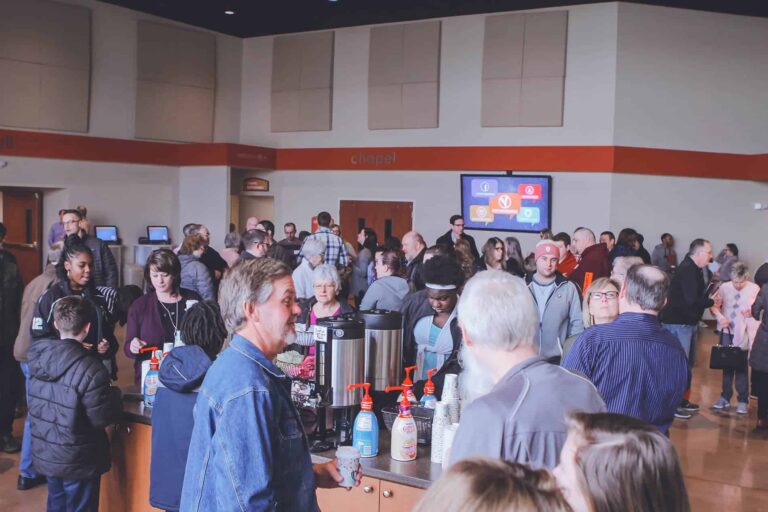Opioid addiction is a complex and challenging disease, but recovery is possible—especially with the right support system in place. While medical treatment, counseling, and medication-assisted therapies (MAT) are crucial components of opioid recovery, peer support plays an equally vital role in helping individuals achieve long-term sobriety. By connecting with others who have lived through similar experiences, individuals in recovery find understanding, encouragement, and accountability that can make all the difference on their journey to wellness.
In this blog post, we will explore the value of peer support groups and mentorship programs in fostering long-term recovery, sharing insights into how these programs empower individuals to stay on the path to healing. We’ll also highlight personal stories of success and resilience to illustrate the transformative power of peer support.
1. What is Peer Support?
Peer support is a type of help and encouragement offered by individuals who have personal experience with addiction and recovery. Unlike traditional treatment programs led by professionals, peer support groups and mentorships are led by people who have walked the path of addiction themselves and have successfully maintained their recovery.
Peer supporters, or recovery coaches, act as mentors, role models, and companions for individuals in recovery, offering empathy, understanding, and practical advice that stems from their own lived experience. This unique form of support creates a sense of community and shared accountability, making it easier for those in recovery to navigate the often difficult and unpredictable road to sobriety.
2. The Power of Shared Experience
One of the greatest strengths of peer support is the shared experience that forms the foundation of these relationships. For individuals struggling with opioid addiction, feeling understood and accepted is incredibly important. Peer supporters have been through the highs and lows of addiction and recovery, which allows them to relate to the struggles, fears, and setbacks faced by those they support.
This sense of camaraderie and mutual understanding helps individuals in recovery feel less alone. Addiction can be isolating, especially when people feel judged or misunderstood by those who haven’t experienced it firsthand. Peer support creates a space where individuals can share openly without fear of stigma, allowing them to talk about their challenges, celebrate their victories, and lean on one another for guidance.
3. Types of Peer Support in Opioid Recovery
There are various types of peer support available to individuals recovering from opioid addiction. Each plays a different but important role in fostering long-term recovery:
- Peer Support Groups: Support groups like Narcotics Anonymous (NA) or SMART Recovery provide safe spaces for individuals in recovery to gather, share their experiences, and offer mutual support. These groups are often led by individuals in recovery themselves and provide regular opportunities for participants to check in, discuss their progress, and learn from the experiences of others.
- Recovery Coaching: Recovery coaches or peer mentors work one-on-one with individuals in recovery to provide ongoing support and encouragement. These mentors can help individuals set goals, navigate challenges, and stay accountable to their recovery plans. Recovery coaching is especially valuable for those who may be transitioning out of formal treatment programs and need continued guidance.
- Sober Living Communities: In sober living homes or recovery communities, individuals in recovery live alongside others who are also committed to sobriety. This constant peer support environment helps create a sense of belonging and shared purpose, reducing the risk of relapse.
- Online Peer Support: With the rise of virtual communication, online peer support groups and forums have become more common. These digital spaces allow individuals to connect with peers from around the world, offering flexibility and accessibility for those who may not have local support options.
4. Why Peer Support is Critical for Long-Term Recovery
Long-term recovery from opioid addiction requires ongoing commitment and support. While medical treatments and therapy can address the physical and psychological aspects of addiction, peer support focuses on the emotional and social elements of recovery, helping individuals maintain sobriety over the long haul. Here’s why peer support is so effective:
- Accountability: Peer support groups and mentors provide an added layer of accountability. Knowing that others are invested in their success helps individuals stay committed to their recovery goals. Whether through regular check-ins, group meetings, or one-on-one conversations, peer supporters help keep individuals on track.
- Emotional Support: Recovery is often an emotional journey, filled with both highs and lows. Peer supporters understand these challenges firsthand and can provide emotional support during difficult moments. Having someone to talk to who truly understands what it’s like to struggle with addiction can help individuals manage stress, cravings, and setbacks in a healthy way.
- Encouragement and Motivation: Seeing someone who has successfully maintained long-term sobriety serves as a source of inspiration and hope for those still early in their recovery journey. Peer supporters can act as role models, demonstrating that long-term recovery is not only possible but worth the effort.
- Relapse Prevention: The risk of relapse is always present in opioid recovery, especially during the early stages. Peer support can serve as a protective factor against relapse by helping individuals identify potential triggers and develop strategies for managing cravings. Additionally, peer supporters are often available to intervene or offer advice during moments of crisis.
5. Success Stories: How Peer Support Transformed Lives
The power of peer support is best understood through the stories of those who have experienced its transformative impact. Here are a few personal accounts that highlight the value of peer support in opioid recovery:
- John’s Story: John struggled with opioid addiction for nearly a decade before entering recovery. After completing a treatment program, he joined a peer support group where he met individuals who had faced similar challenges. “It was the first time I didn’t feel judged,” John recalls. “Hearing their stories gave me hope that I could make it too.” John credits his peer support group with helping him stay sober, and today, he serves as a mentor to others in recovery.
- Sara’s Story: After losing her job and home due to opioid addiction, Sara was unsure where to turn. A recovery coach connected her with resources for housing and job training, but most importantly, provided ongoing encouragement. “My coach was there for me when I felt like giving up. She’d remind me of how far I’d come, and that kept me going,” Sara says. Today, Sara is two years sober and works as a peer mentor herself, helping others rebuild their lives after addiction.
- Tom’s Story: Tom found it difficult to stay sober after leaving rehab, as he felt isolated in his small town with few resources for addiction recovery. He joined an online peer support group, where he connected with others who shared his experience. “Even though we’re miles apart, we check in with each other every day,” Tom says. “That support keeps me grounded.” With the help of his online peers, Tom has maintained sobriety for over three years.
6. Conclusion: The Lifelong Impact of Peer Support
Recovery from opioid addiction is a lifelong process that requires ongoing dedication, perseverance, and support. Peer support offers individuals the opportunity to connect with others who truly understand their journey, providing a sense of community, accountability, and encouragement that is invaluable in long-term recovery.
For many, peer support is the missing link between treatment and sustained sobriety. Whether through group meetings, one-on-one mentorship, or online connections, these relationships help individuals stay motivated, navigate challenges, and build lives free from addiction.
If you or someone you know is struggling with opioid addiction, remember that you don’t have to face it alone. Peer support programs are available in many communities, and connecting with others who share your experience can provide the understanding and encouragement you need to achieve lasting recovery. Reach out today, and take the next step toward a healthier, addiction-free future.






